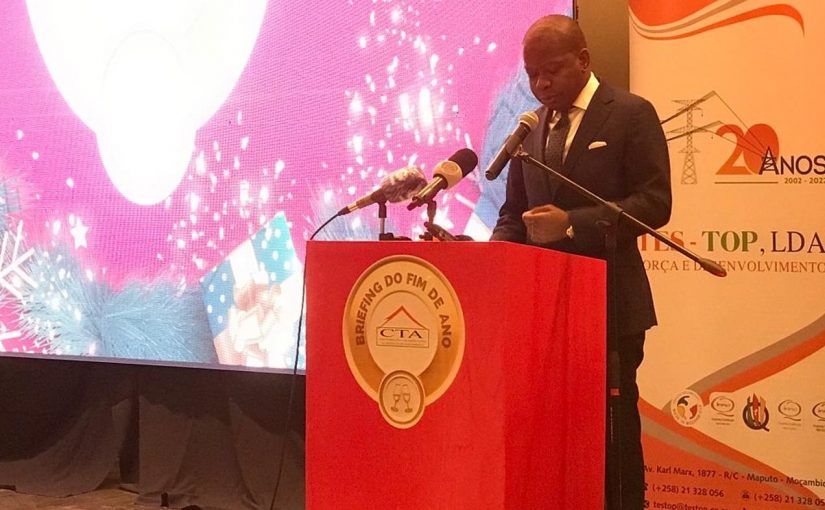Mozambique’s economy contracts for third straight quarter - INE
Mozambique: “Macroeconomic environment stagnated in 2022, but better is expected for 2023” – CTA

Image: Diario Economico
The president of the Confederation of Economic Associations, Agostinho Vuma, said this Wednesday (14-12) during the association’s end-of-year briefing, that the macroeconomic environment in 2022 had shown a tendency to stagnate.
This resulted from the rise in interest rates, which led the financial system’s prime rate to reach 22.6% in December.
“In 2022, it became more expensive for small and medium-sized companies (SMEs) to honour their financial obligations with the banks, as well as to contract new loans,” Agostinho Vuma said.
In a year marked by the announcement of the government’s Economic Acceleration Program (PAE), the Mozambican private sector was satisfied with its approval. However, “it has expressed dissatisfaction with the concrete format and the final content of the fiscal package”, said Vuma.
He gave as an example the 10% reduction of Corporate Income Tax (IRPC) for agriculture. “The private sector has always advocated that it be in force for at least 10 years, as it would help to attract investment, taking into account the payback period of the same in certain cultures. However, there are voices that say that it can only last two years,” he complained.
Meanwhile, for 2023, Mozambican businesspeople foresee an improvement in the business environment despite the risks that still hover at national and international level.
“We foresee a positive and hopeful 2023 for the national private sector,” Vuma declared. “We have high expectations regarding the effective implementation of measures within the scope of the PAE, with emphasis on the reduction of the tax burden as a mechanism to boost business recovery.”
“As a CTA, we would like to see problems related to the late payment of suppliers’ invoices and VAT refunds addressed. Companies, particularly SMEs, are suffering because of these situations, as their treasury is under great pressure and they are unable to comply with tax obligations and banks’ demands. In such a situation, public spending, instead of promoting the growth of SMEs, causes them to go bankrupt,” Vuma argued.
Deputy Minister of Industry and Commerce, Ludovina Bernardo, meanwhile reassured the private sector, saying that “these are legitimate concerns, but, as you can see, the government defines the measures within the possible and acceptable parameters, so that it can continue to work and collect taxes, which will then be transformed into the provision of infrastructure and social and economic services for the population.”












Leave a Reply
Be the First to Comment!
You must be logged in to post a comment.
You must be logged in to post a comment.